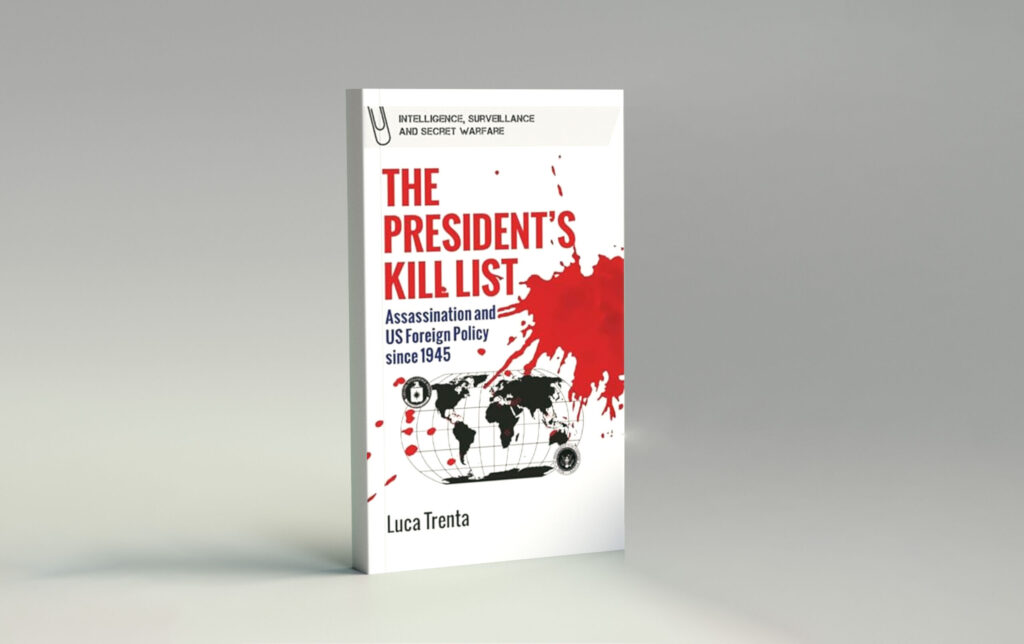Swansea academic’s new book explores US government’s role in assassinations

The US government has a long history of involvement in assassinations and assassination attempts, from Fidel Castro to Qassem Soleimani in 2020.
In his new book, The President’s Kill List: Assassination in US Foreign Policy Since 1945 (Edinburgh University Press), Dr Luca Trenta, a specialist in US Foreign Policy and associate professor of International Relations at Swansea University, provides a comprehensive overview of the US government’s involvement in assassinations from the early Cold War to the present day.
The book reveals the variety of methods employed, from poison and sniper rifles to hitmen and local actors. It delves into how policymakers decided on assassinations and the extent of Presidential control over these decisions.
By tracing the history of the US government’s approach to assassination, Dr Trenta analyses the evolution of these policies. For the first time, the book reveals how successive administrations have justified and legitimized assassinations both privately and publicly, ensuring this controversial tool remains available
Dr Trenta is renowned for his expertise in US foreign policy, especially in covert operations and assassinations. He received the 2017 British Academy Rising Star Engagement Award for his project on covert action, through which he has conducted educational outreach and produced related podcasts.
On the publication of his latest book, Dr Trenta said: “In recent months, state-sponsored assassinations and suspected assassinations have received increased attention in the news. Canada, India, the United States, Israel and other states have been drawn into a game of plots and counter-plots, accusations and denials. Much academic and media commentary on these developments tends to identify assassination as something that “rogue” and – crucially – non-Western states do.
“The book aims at partially redressing this analysis. Assassination has featured prominently in US foreign policy since the early Cold War. As the book finds – primarily through archival research – CIA officials, presidents and key policymakers, such as National Security Advisors, have been very much involved in plotting assassinations and assassination attempts. In several cases, the book challenges the denials and obfuscations of these officials to expose the functioning of the US government is this most controversial area.
“The recurrence and resilience of assassination as a foreign policy practice in US foreign policy also helps us challenge the (self) image of the United States as the leader of a liberal and rule-based international order. These rules existed – if at all – only for some. Others such as the global south leaders targeted in these plots suffered the consequences of the US government’s covert activities.”
The President’s Kill List: Assassination in US Foreign Policy Since 1945, published by Edinburgh University Press, is available to buy now.